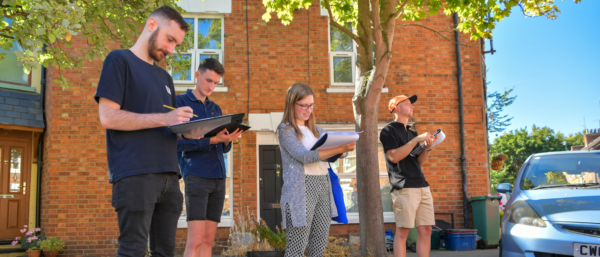Training to Become a Surveyor.

Becoming a surveyor offers a unique blend of outdoor work, problem solving, and an opportunity to support homebuyers, homeowners and housing providers. For those intrigued by property, construction, and the technology used to assess buildings for issues and defects, pursuing a career as a residential building surveyor might just be your calling.
Introduction to Surveying: The Role, Importance, and Career Opportunities
Surveying professionals play a pivotal role in the housing sector. They provide crucial information on property condition to help keep buyers, owners and householders informed. Surveyors use their detective skills to inspect homes for the issues, risks and defects hidden within, such as damp and mould, structural movement, and wood rot. For as long as properties are bought and sold, there will always be a demand for skilled residential surveyors to keep the housing market moving.
By training to become a surveyor, you can join a community of property professionals helping to ensure the safety and quality of the UK’s 29 million homes.
Educational and Professional Requirements: Qualifications and Memberships
Traditionally, becoming a surveyor has required a degree in surveying, real estate or a related field – usually a degree accredited by the Royal Institution of Chartered Surveyors (RICS).
However, in 2014, a skills shortage in the industry became the driving force behind a new, vocational route into the residential surveying profession. The Sava Diploma in Residential Surveying and Valuation is currently the only degree-alternative route into the surveying profession for those without experience. This part-time pathway is particularly beneficial for those changing careers or managing other life commitments, offering a viable route to qualifying as a surveyor without putting your life on hold.
Overview of Surveying Techniques and Equipment: Modern Tools and Technologies
The world of surveying is rich with specialised techniques and cutting-edge technology. From drone imagery and thermal imaging cameras, modern surveyors need to embrace a range of tools. These technologies allow for more accurate, timely, and cost-effective assessments of residential buildings.
The Path to Becoming a Surveyor: Steps, Challenges, and Growth Opportunities
The path to becoming a successful surveyor is multifaceted. Here are the key steps and considerations:
- Education: Begin with the essential academic qualifications by training to become a surveyor with a degree or part-time diploma.
- Practical Experience: Hands-on experience is invaluable. Look for shadowing opportunities to gain real-world insights.
- Memberships: Apply for professional memberships to increase your credibility and career opportunities.
- Continued Learning: The surveying field is continuously evolving. Stay abreast of new technologies and best practice through ongoing professional development including CPD courses, industry events and technical articles.
Emerging Trends in Surveying: The Impact of Technology and Industry Innovations
The surveying profession is not immune to the digital transformation that is reshaping industries globally. Artificial intelligence, machine learning, and increased data analytics capabilities are streamlining surveying processes, making them more efficient and accurate. In recent years, drone technology has enabled surveyors to safely look at roofs etc. by remaining firmly on the ground. Staying informed about these trends is crucial for anyone entering the field.
Key Takeaways and Next Steps for Aspiring Surveyors
For those considering a career in surveying, the future looks bright. The profession offers diverse opportunities across various sectors, promising both challenging and rewarding work. By pursuing flexible training options, aspiring surveyors can now plot a course that aligns with their life commitments, ensuring a balanced approach to professional development.
Your future as a residential building surveyor begins with that first determined stride forward. Remember, the buildings of tomorrow need the surveyors of today. Get trained, get qualified and become part of a profession that shapes the world we live in.
To find out more about training to become a surveyor through Sava’s part-time, degree-alternative qualification, head to our website to explore our surveying diploma programme.